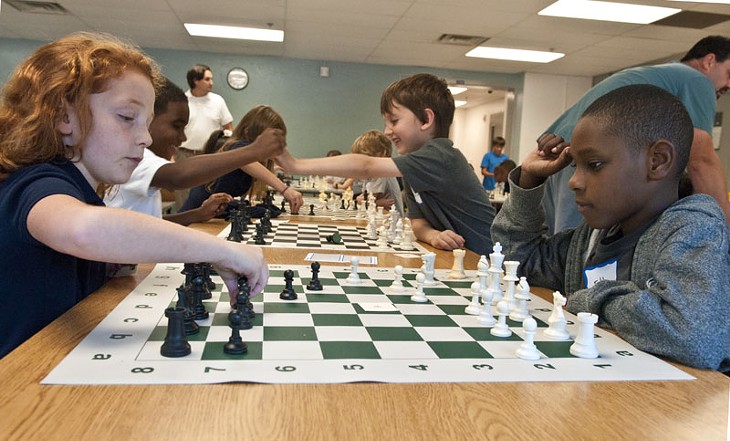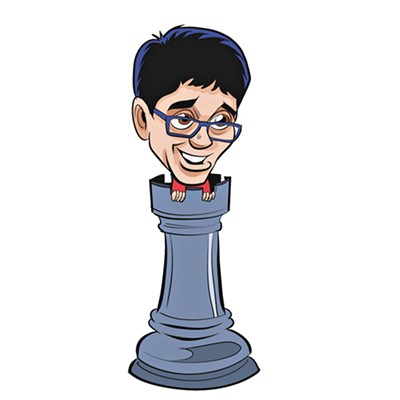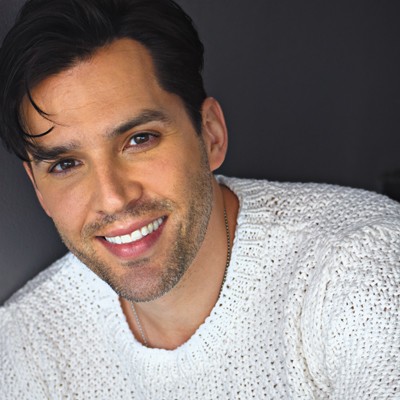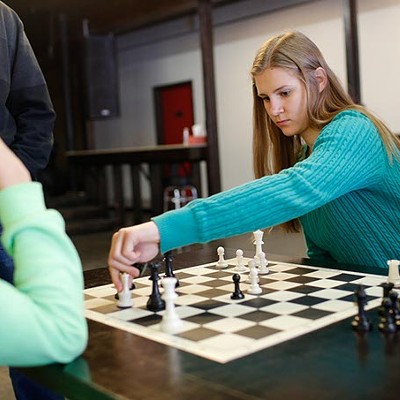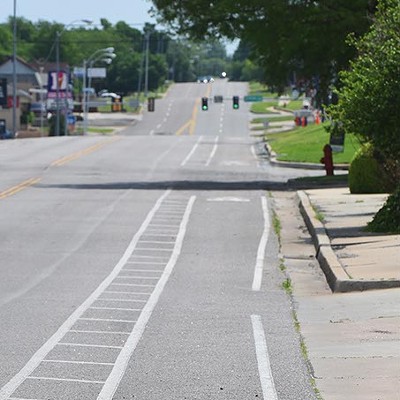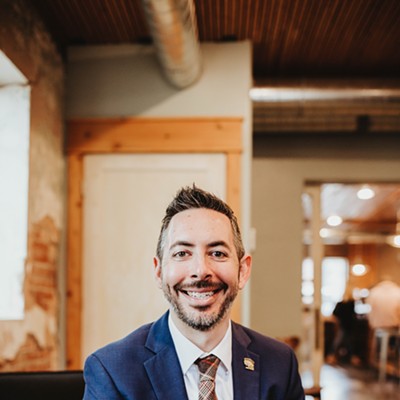James Emmons and Quinn Boren, students at Wilson Elementary School, stare intensely at the chessboard between them. The school cafeteria is loud and chaotic as more than 50 students are wrangled together for the start of the after-school chess club, but Emmos and Boren don’t seem phased.
“Check,” Emmons said before Boren quickly moved his king to stay alive in the game.
“Check,” Emmons said again, which was once again followed by a move of Boren’s king.
This dance went on for a few more minutes before Boren found a moment to strike back and declared, “Checkmate.”
In a world where elementary students might be more accustomed to smartphones, video games and Facebook, the game of chess has grown in popularity not just at Wilson but at a handful of elementary schools across the city. Chess programs have been launched at Cleveland Elementary and Ida Freeman Elementary in Edmond, two schools that have produced national chess team players and local champions.
The launch of school chess programs and competitions comes at a time when the game appears to be growing in popularity across the country. It hit a peak in the 1970s when American Bobby Fischer become the world’s top player and captured attention with his defeat of USSR player Boris Spassky in a duel billed as a Cold War chess match. Membership in the United States Chess Federation more than doubled in the 1980s and ’90s as chess tournaments gained national headlines and the world’s best players took on computers.
Popularity waned over the next two decades but has made another comeback, and membership in chess clubs and organizations across the country have grown. Planting the seed for a love of chess often starts at a young age, and the new program at Wilson has captured the imagination of dozens of students.
“We really want to introduce a new generation to chess, and for the ones who like it, we want them to enjoy all the benefits of chess,” said Rebecca Rutledge, a volunteer with the Wilson chess club, which calls itself the Wise Wolves Chess Club and Team.
The program is designed to introduce students at Wilson to the game but also take it beyond the walls of the school.
“We also want to go outside our school and make chess visible in our community and kind of demystify it,” Rutledge said. “We are starting to collaborate with other chess teams in the city. The scene is really starting to thrive.”
Academic advancement
Successful chess programs in schools across the country have claimed improvements in academic achievement for children who are involved, and volunteers at Wilson believe the same could be true here.
A study in Venezuela using the Wechsler Intelligence Scale for Children “found a significant increase in most students’ IQ scores after only 4.5 months of systematically studying chess,” according to Aleksandr Kitsis in a report for Vivacity Chess Center. Other studies in Europe and the United States have found correlations between improved academic performance, including math, and playing chess.
“The positive effects of chess on the developing brain are well-documented,” said Joe Veal, Wilson’s chess coach. “Kids who play chess enjoy improved memory and focus. They learn to weigh consequences and assess risk, which leads to stronger decision-making skills.”
Students playing chess after school last week seemed to embody the type of analytical thinking promoters of the game point to.
“I love the strategy part,” Boren said about the game. “If you don’t know the strategy of the game, it’s almost impossible to play.”
Emmons agreed, saying he believes the focus and strategy he has learned playing chess carries over to other aspects of life. “I use strategy now when I’m playing Monopoly, football ... or dealing with bullies in class,” Emmons said. “It’s a lot like football because when your king is trapped, that’s like your quarterback getting sacked.”
Building a community
Oklahoma City is home to several chess organizations, and new community chess events have become popular over the past few months. Rutledge is hoping to capitalize on the growth of the game and develop school-based chess clubs across the city.
“Seeing the positive impact is what made me want to bring the [chess] program here to Wilson,” Rutledge said about her own son’s enjoyment of the game. “Chess is something that can really transform a kid’s life if they like it. Chess is cheap; they don’t have to buy special athletic shoes or equipment.”
Rutledge is already in conversations with officials at other schools, including the new John Rex Charter Elementary School and Edgemere Elementary, about starting more chess clubs.
“It’s a lot of fun, and I didn’t think it would be,” Emmons said before moving on to challenge another student. “It’s easy to learn but takes a lot of thought when you are trying to become really good.”
Print headline: Checkmate // A new school chess program hopes to develop love of the game in a new generation.

